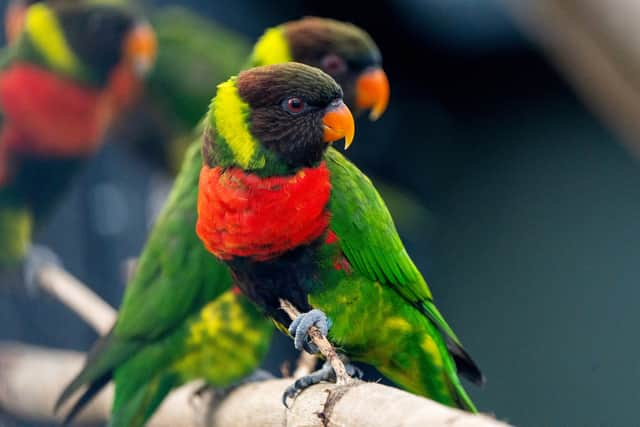'Most precious chicks on the planet' hatch at Chester Zoo
and live on Freeview channel 276
Two extremely rare baby birds have hatched at Chester Zoo in what conservationists believe to be a “pivotal moment” for the species.
Described as "two of the most precious chicks on the planet", the parrots arrived safely into the world at the attraction on September 9 and 11.
Advertisement
Hide AdAdvertisement
Hide AdKnown as Mitchell’s lorikeets, the special parrots are one of the world’s rarest birds and face extinction. Once found on the Indonesian islands of Bali and Lombok, recent searches have found just seven remaining in the wild.
Zoe Sweetman, parrot team manager Chester Zoo, said: “The hatching of two Mitchell’s lorikeet chicks is pivotal moment for the species, especially as its future on the planet hangs in the balance.
“Given how precious the chicks are, we’ve been monitoring them very closely and weighing the duo regularly to give them every chance of fledging the nest and reaching adulthood – they really are very special.


“The unrelenting pace of the illegal wildlife trade has pushed the species to the edge of existence, so in 2018 Chester joined an important conservation breeding programme where every new addition is helping to protect the future of the species.
Advertisement
Hide AdAdvertisement
Hide Ad"We’re now home to 12 of these beautiful parrots, which is sadly more than what has been recorded in the wild in recent years.”
Zookeepers will determine the sex of the important new arrivals by testing DNA samples from their feathers and they will now join a special breeding programme for the 'extremely rare' species, which was set up at conservation zoos across Europe.
Comment Guidelines
National World encourages reader discussion on our stories. User feedback, insights and back-and-forth exchanges add a rich layer of context to reporting. Please review our Community Guidelines before commenting.